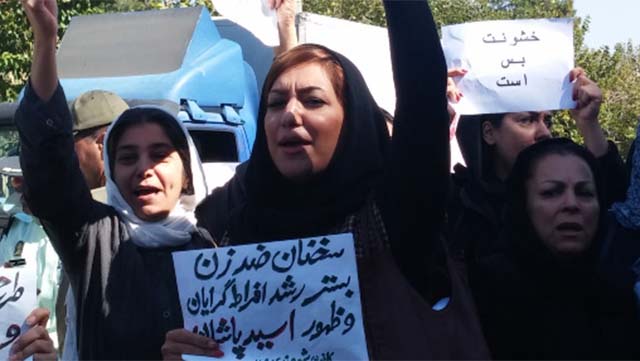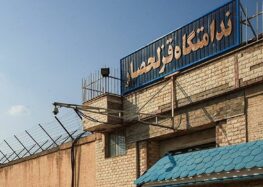Iranian Women’s Rights Activists Use Elections as “Opportunities” to Put Forth Demands

A member of the Women’s Citizenship Center, a non-governmental organization in Tehran, told the Center for Human Rights in Iran (CHRI) that women’s rights activists are increasingly using their leverage as an important voting block to put forth their demands during elections.
On May 6, 2017, more than 180 women’s rights activists signed a declaration stating their demands to the next president and thousands of local council members who will be elected nationwide on May 19. Among the demands was the call for women to fill “at least 30 percent” of ministerial positions and an end to all gender discrimination.
“When elections come along, there are always opportunities to raise issues and challenge candidates about their slogans and promises,” Mahdieh Golrou, one of the declaration’s signatories, told CHRI. “Now we are taking this opportunity to ask the candidates about their positions on women’s issues and raise some of our concerns.”
“The results may not have manifested themselves in real terms yet, but just the fact that the candidates are showing sensitivity towards women’s issues shows the impact by the women’s movement in the past 40 years,” she said.
“Women’s participation in the elections is very intense this year,” added the activist. “There have been a number of statements issued by women with similar demands and (President Hassan) Rouhani’s campaign center for women has been very active in following up on women’s demands.”
Noted Golrou: “It is true that civil society groups suffered a lot in the eight oppressive years under President Mahmoud Ahmadinejad (2005-13). However, in the past four years, civil rights groups have come alive due to the fact that some of the pressures have been lifted. We still see activists being persecuted, but it’s not as bad as the Ahmadinejad era.”
Golrou told CHRI that presidential candidates are increasingly focusing their campaign efforts on women.
“All these politicians now have to look at the society’s silent half, which has been ignored for so many years, and talk about their issues,” she added. “I think this alone shows that after all the suffering and oppression, the women movement’s hard work is showing results.”
The women’s rights activist told CHRI that the demand of including more women in the president’s cabinet is an important step that would be easiest to achieve.
“What we have tried to do in our declaration is cover the most important demands from all sectors,” said Golrou.
“Women have different demands, like students, workers, teachers, managers, and athletes, homeless women and sex workers,” she added. “I won’t pretend that we have covered every issue, but we did our best.”
Women’s Demands
The demands listed in the May 5 declaration include:
Political Participation
- Allocating at least 30 percent of cabinet positions to women as ministers and deputy ministers.
- Appointing as many women as possible to senior governmental positions at the city, county and provincial levels.
- Resurrecting the offices of women’s affairs in all ministries to oversee their policies on women.
- Ending the practice of viewing women activists through a security lens.
- Creating a freer climate for the activities of independent women’s civil society organizations.
Economy
- Introducing legislation to increase women’s shares in the economy, which is officially less than 15 percent of the workforce, and eliminating gender discrimination.
- Obliging employers to pay equal salaries for the same work by men and women.
- Preventing employers from expelling women because of pregnancy and childcare after birth.
- Eliminating ethnic and religious discrimination against female workers.
- Removing all discriminatory regulations preventing female students from studying certain courses in universities.
Devising policies to support women in rural areas where they usually work at home and on the farm.
- Allocating greater resources to provide healthcare, employment, financial assistance and education to disabled and elderly women.
Social Affairs
- Amending laws to end gender discrimination in matters such as inheritance, nationality, marriage and divorce.
- Strengthening laws to combat domestic violence.
Cultural participation and sports
- Ending numerous laws and regulations preventing women’s participation in lawful cultural activities.
- Ceasing the activities of morality police squads against “bad-hijab” women.
- Removing the ban on female spectators at sport arenas.
- Ending restrictions on women’s participation in certain sports and international competitions.





